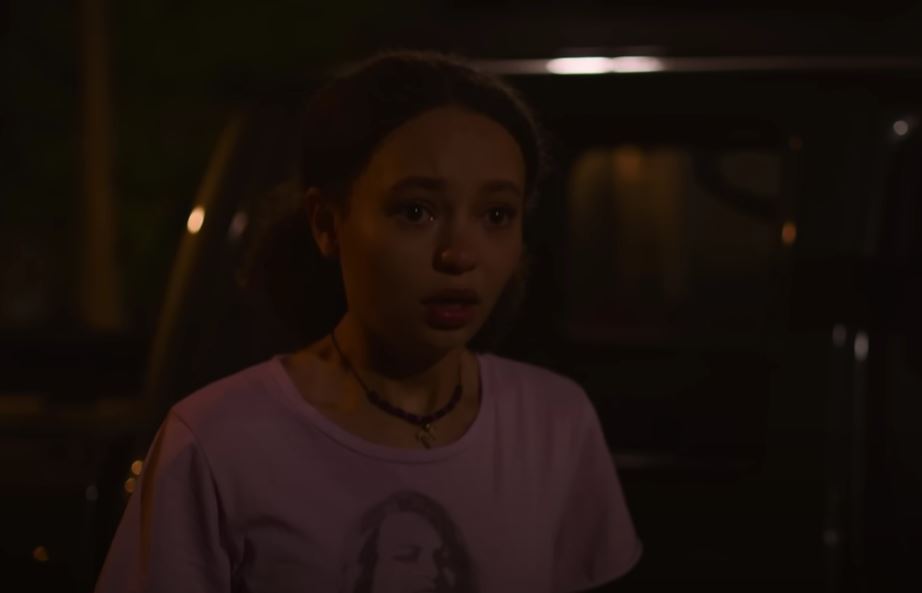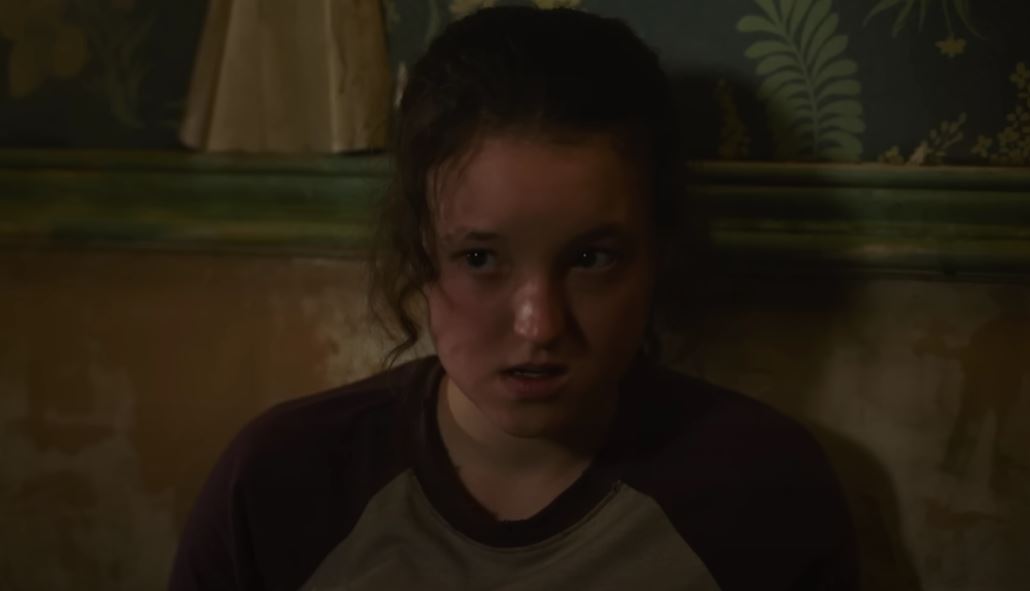If there is one thing I absolutely want to stress about HBO’s adaptation of The Last Of Us, it is that headline. The thing plaguing 99% of video game adaptations going back some 30 or so years now has been that most of them simply don’t get it. They don’t understand what is worth adapting about a game, or they don’t understand why people like it, or even what games should be adapted compared to which ones simply will not work in other forms.
The Last of Us certainly fits a live-action adaption better than, say, Street Fighter, but there was still the considerable risk that an adaption would totally fail to understand how to make the story translate, or that those in charge would not care.
I could not be happier to say that The Last of Us fully, faithfully, and remarkably knows what the hell it is doing. This first episode was everything I could have reasonably hoped for.

There is no doubt that The Last of Us is kind of tailor-made to translate to film. The game series does nothing to hide its attempt to play out like an interactive movie. The thing is, you can argue that its obvious influences were just as likely to make an adaptation fail, rather than succeed. The Last of Us is largely just your typical generic zombie story and falls back on the same kind of zombie tropes we have seen gnawed down to the bone ever since Night of the Living Dead popularized the zombie movie.
Just take a look at the adaptation of Uncharted, Naughty Dog’s other hit cinematic game series. The creators of that movie clearly saw Uncharted as an uninteresting Indiana Jones knockoff and treated it as such. To be fair, it largely is, with a good dose of The Mummy in there as well. The same thing very well could have happened to The Last of Us. Treat it like your typical zombie schlock and move on.
The factor that makes Naughty Dog’s games so popular is not the originality of its premises, but the characters they create and their exceptional skill at crafting interesting, lasting moments for said characters. Uncharted did not succeed because it is an Indiana Jones knockoff. It succeeded because of Nathan Drake, Elena Fisher, Sully, and all the other characters who are so well crafted and make me care as they experience flashy set pieces. Unfortunately, the movie did not understand that.
The Last of Us clearly does understand this vital role in successfully adapting a story.
While much of the episode does copy or add on to the game’s opening scenes, they still managed to perfectly capture who Joel, Ellie, Tess, and Sarah are in original scenes. The best example, at least in my opinion, occurs with Ellie, who spends much of the first episode chained alone in a room as the Fireflies watch her for signs of infection. We do not see this in the game, and yet it’s arguably a better introduction to Ellie than what the game does.
The same is arguably true of Ellie’s code-breaking scene with Joel later in the episode. This is also new to the story, and shows both Ellie’s humor and her underrated intelligence. Ellie has a sharp eye for discerning truth in the people around her, which shows in how she tricks Joel into confirming his smuggling codes.
Meanwhile, we also have new scenes with Joel working an honest-to-goodness job disposing of dead bodies, followed by negotiations for the job he’ll have the next day. Stuff like this adds to Joel’s character while also defining daily life for those survivors in Boston.
Scenes like this show how the story understands its characters. After all, there is more to adaptation than one-to-one copying of the original story. Zack Snyder’s Watchmen largely just lifted its scenes, editing, directing, cinematography and all, from Alan Moore’s graphic novel. It still manages to largely miss the point of these scenes, making for a questionable adaptation of the story.
The ability to create engaging new material that slots perfectly into the themes, plot, and setting of the original story is what makes for truly good adaptations. Take, for example, the new NieR: Automata anime. The first episode is pretty much just a direct replication of the game’s opening mission, but with the gameplay parts absent or truncated. It’s fine, and it was certainly beautiful to watch, but the episode made me wonder why I shouldn’t just play the game instead.
Whereas the second episode followed an original subplot which both fit perfectly into the game’s story while also nailing the overarching themes of NieR, making for a far more impressive episode.
Moments and episodes like these make the difference between adaptations that disappoint and those that do not. And it’s why adaptations are always so much more than casting people who look like the character or making sure the plot is exactly the same.
The Last of Us managed this balance pretty much perfectly. Joel, Ellie, and Tommy all sound and act just like they do in the game. The Boston QZ looks like it does in the game. The infected pretty much act exactly the same. The episode was distinctly recognizable as The Last of Us. And yet it also took different directions that not only stayed true to the story, but if anything made more sense of it.
Maybe the biggest example of this was the change regarding Robert. In the game, Joel and Tess hunt Robert down in search of guns and come across Marlene, which leads to Ellie and the trip outside the walls. Changing that to a hunt for a truck battery, as Joel wants to head east in search of Tommy, fits the scenario considerably better. Introducing Bill in the first episode establishes their relationship ahead of his appearance later. The Ellie/Marlene scenes will add to the places the plot goes later.

It makes sense because these are the scenes that replace the two hours spent playing the game. This is what should replace those gameplay sequences, scenes that show us more of the characters while delivering the same narrative beats.
Really, the first episode of The Last of Us was a masterclass in what adaptation should be. It takes what we know, respects it, builds it, and refines it to arguably improve upon the story. The result is the best live-action adaptation of a video game ever made, by such a wide margin that it’s laughable to consider otherwise. Especially if, as many reviewers say, the first episode is arguably the weakest of the season.
And I don’t want to sound as if I think adaptation is easy. It just takes time for creators to understand how to adapt things to new mediums. Video games are far from alone in this. Comics had some successes moving to movies over the years, but it was not until Spider-Man and X-Men, and then eventually the Marvel Cinematic Universe, that they shook the stink of disappointment. Television didn’t start matching the storytelling in movies until the mid-late 90s. Anime is still trying to make the leap.
Video games were always going to be able to make this jump, but time and technology needed to catch up. With The Last of Us, as well as animated successes like Arcane and Castlevania, video games may finally be hitting their stride. It looks like video game adaptations might finally be starting to get it.
To be fair to some that came before, it also helps when a company like HBO throws its whole weight behind an adaptation. 1995’s Mortal Kombat was not a good movie, but I would argue its failings fall almost entirely on the resources allotted to the project. Mortal Kombat was the first video game movie to really get the project it was adapting, to the point it has shaped the video game series ever since, and the only thing wrong with it was that it was cheap.
Most video game movies since have been low-budget cash grabs with varying levels of success, with the occasional Super Mario Bros. that totally disrespected their source material and failed miserably.
Still, when people argue that video games are somehow impossible to adapt, I could not disagree more. It’s about understanding what people want adapted. It is about understanding which video games are right for the move and which ones are not. Even then, you need to understand what to adapt from these video games, and how, rather than focus too much on whether characters look like their gaming counterparts or whether the settings and plot are exactly the same.
The Last of Us is a great example of a game you try to adapt one-for-one, or at least as closely as you can, while Arcane using League of Legends was not, and both succeed in understanding their respective lessons about what to do or not do.
Will The Last of Us truly change things? That’s left to see. There are many on the horizon, and all it takes is Netflix ruining Bioshock or Amazon’s God of War sucking to set this all back to zero. Maybe The Last of Us will be more of a Superman or Batman, an oasis of good among its awful contemporaries.
If so, I will treasure it all the same. I grew up with the NES, and have spent 30 years waiting for something like The Last of Us to exist, to get video games and why their stories can work in movies or TV. And if this is all I will have for the near future, I am content.
Images Courtesy of HBO
Have strong thoughts about this piece you need to share? Or maybe there’s something else on your mind you’re wanting to talk about with fellow Fandomentals? Head on over to our Community server to join in the conversation!

